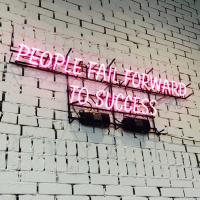Lessons Learned from Product Failures

Failure is inevitable. If any organization or individual has not faced failure before, it means they have tread a very safe path without taking chances, which is not a recommended route.
Consequently, failure is not inherently bad or undesirable, because it is a stepping stone to success.
Being agile is all about learning from failures and building on experiences. This applies to not just individuals, but even to large organizations. The key is being transparent and objective in accepting and understanding failures, and taking away lessons for future actions and decisions.
Product failures, for example, teach us innumerable lessons, like how to learn from ideas that were not fully thought through, bad timing, a lack of value-added offerings, poor quality, a change in strategy, scope creep, or too little user focus. This last lesson can be especially useful when we are designing and developing products.
A lack of customer centricity is considered one of the top reasons for the failure of the Amazon Fire Phone. Amazon, which had always touted a reverse engineering approach of starting with the customer and working backward, took the opposite strategy with the Fire Phone, instead playing catchup with competition. The motivation was trying to recoup revenue it was losing to Apple and Google through their mobile app stores, rather than focusing on what customers wanted and needed.
Similarly, the failure of Google+ is largely attributed to attempting a product in a space where customer stickiness was very high. Compared to other social platforms that were already popular, a move to Google+ was not seen innovative and compelling enough.
In the book Hit Refresh: The Quest to Rediscover Microsoft's Soul and Imagine a Better Future for Everyone, one of the core success drivers Microsoft CEO Satya Nadella mentions is customer empathy. If customer empathy is thought through for every product, the business and engineering stakes will follow suit. What’s important is staying focused on innovation, value addition, and end-user priorities.
For example, a few years ago Microsoft was viewed as “a tired PC-centric technology company that had stumbled badly in the mobile business.” But its innovation around cloud computing offerings and artificial intelligence has helped rejuvenate the company and gain market share.
Failures also give organizations and individuals an opportunity to look back, learn, and move on—a humbling and grounding experience in an otherwise aggressive and driven business world. Failures give us the much-needed opportunity to revisit strategy and change our focus periodically, so we can rise up to reach new heights.
The most important lessonsto take from our failures are to embrace risks, be innovative, learn from our mistakes, and not to let failure stop us. This is an essential component of a growth mindset for any company, small or large.

